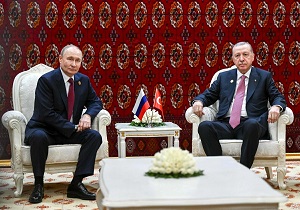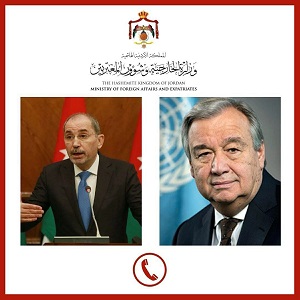How misinformation comes from a talk on disinformation - By Evanna Hu, Jordan News
The writer is a nonresident senior fellow at the Atlantic Council’s Scowcroft Center for Strategy and Security, and the CEO and partner of Omelas, an artificial intelligence and machine learning company working on mapping the online information environment.
At a recent event hosted by the Shoman Library on disinformation, I stated that Jordan was third in the world in terms of the number of cyber-attacks and influence operations. I also made it clear that this statistics was from 2016–2017, a period at the apex of the anti-Daesh war and Syrian civil war. Since then, the anti-Daesh war has continued but at a lower intensity while Bashar Al-Assad has taken control of key areas in Syria.
Unfortunately, many only remembered the data point that Jordan is the third most targeted country online, when, in fact, it referred to both cyber-attacks and influence campaigns; moreover, somehow, the fact that the statistics was from 2016–2017 was also conveniently left out. Newspapers ran stories using the incomplete information to bolster their arguments that the Jordanian government should do more in cyber and disinformation defense. While the conclusion is sound, I would like to clarify the statistics and use it as the perfect example of misinformation — that is, incorrect information that is accidentally spread with no malign intent.
Let me reiterate: Jordan was the third most targeted country if the number of cyber-attacks and coordinated influence operations in 2016-2017 were added up. Jordan was extremely critical during that time when the global war against Daesh and the Syrian civil war were raging on with multiple actors. While the two are still security priorities today, they have simmered down, making Jordan no longer the third most targeted country in cyber and influence operations.
We are just coming out of a major pandemic where accurate health information saved lives and misinformation endangered them. Misinformation drives good people to make poor decisions, bad investments, and take dangerous risks.
By now, however, the misinformation has already spread. There are heated public discussions on Facebook and I have received multiple direct inquiries from private and public sectors. They are not inquiring about points in my talk, but about points from the misinformation.
I get asked a lot about how we can combat mis/disinformation online. (Just to be clear, misinformation is spreading false information without malign intent, disinformation is a deliberate action with malign intent.) My answer: media literacy education, training critical thinking skills, and, to some extent, fact checking.
So, I was pleasantly surprised when the misinformation was questioned by Jordanian experts such as Majdi Qabalean. We need more fact checkers with critical thinking skills to question when something sounds fishy. In this case, his Facebook post was the final push I needed to write an article debunking the misinformation. But this should also be used to reflect on how misinformation can spread easily and quickly.
We are just coming out of a major pandemic where accurate health information saved lives and misinformation endangered them. Misinformation drives good people to make poor decisions, bad investments, and take dangerous risks. Following experts who question results, supporting professional journalists who base their work on fact, and, most importantly, investing in our own critical thinking betters our choices, lives, and societies.
Evanna Hu is a nonresident senior fellow at the Atlantic Council’s Scowcroft Center for Strategy and Security, and the CEO and partner of Omelas, an artificial intelligence and machine learning company working on mapping the online information environment.
Latest News
-
 Hamas marks 38th anniversary, rejects all forms of guardianship over Palestinians
Hamas marks 38th anniversary, rejects all forms of guardianship over Palestinians
-
 Erdogan warns Black Sea should not be 'area of confrontation' after strikes
Erdogan warns Black Sea should not be 'area of confrontation' after strikes
-
 Indonesia flood death toll passes 1,000 as authorities ramp up aid
Indonesia flood death toll passes 1,000 as authorities ramp up aid
-
 Safadi, UN Chief highlight vital role of UNRWA, call for continued humanitarian aid to Gaza
Safadi, UN Chief highlight vital role of UNRWA, call for continued humanitarian aid to Gaza
-
 'Israel' targets Hamas commander in Gaza strike
'Israel' targets Hamas commander in Gaza strike